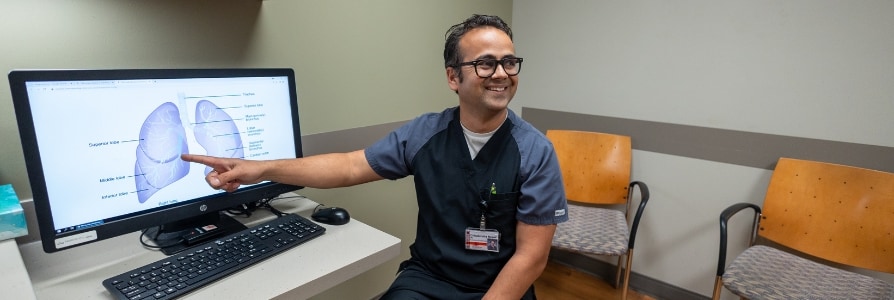Lung Cancer

Lung cancer is a type of cancer that starts when abnormal cells grow rapidly in your body. There are two types of lung cancer:
- Non-small cell lung cancer (NSCLC) - the most common type of lung cancer
- Small cell lung cancer (SCLC) - tends to grow faster than NSCLC
Symptoms of Lung Cancer
Many individuals do not have symptoms during the early stages of their lung cancer. Early stages are normally diagnosed through routine lung cancer screenings or an imaging test. As lung cancer spreads, you may begin to notice some of these symptoms:
- A lingering cough
- Chest pain or bone pain
- Coughing up blood or blood in your spit
- Feeling tired or weak
- Hoarseness
- Loss of appetite or weight loss
- Recurring respiratory infections
- Shortness of breath or wheezing
- Swelling in the neck
Lung Cancer Screening Guidelines
Detecting lung cancer early significantly increases your chances of survival. A low-dose computed tomography (CT) scan, is a simple screening that can detect signs of lung nodules early.
Talk to your primary care provider about being screened for lung cancer if you meet these guidelines:
-
- Are between the ages of 50-77.
- Are a current smoker or you quit smoking within the last 15 years.
- Have a tobacco smoking history of at least 20 "pack years" (an average of one pack per day for 20 years or two packs per day for 10 years)
What happens if a lung nodule is found?
If a suspicious lung nodule is found during your lung cancer screening, rest assured you have a full team of cancer experts that will be there for you every step of the way. You’ll receive comprehensive, personalized care from diagnosis and treatment to support and survivorship.